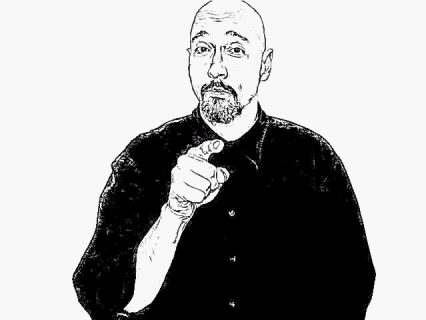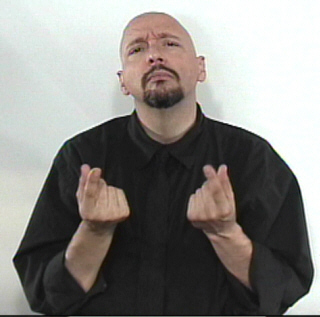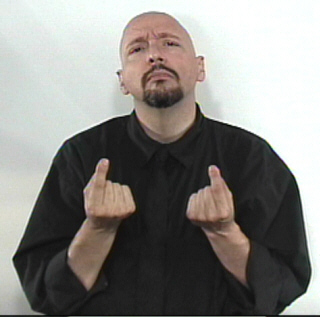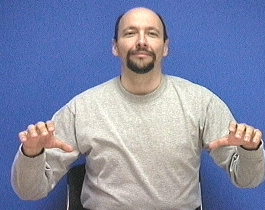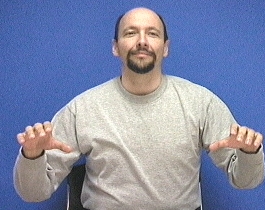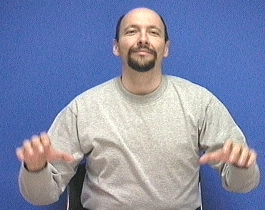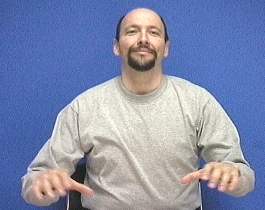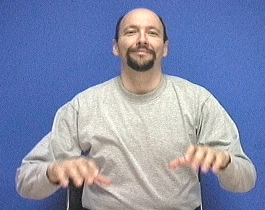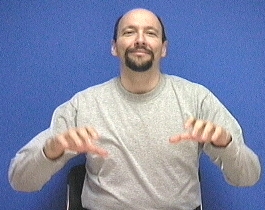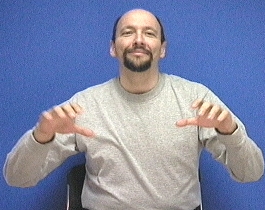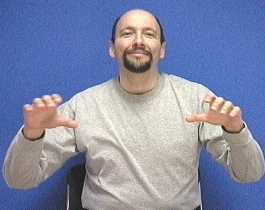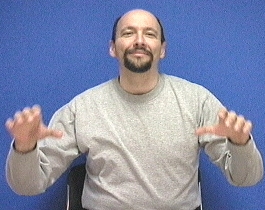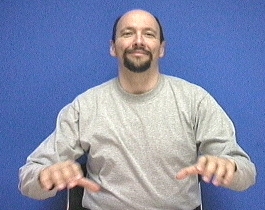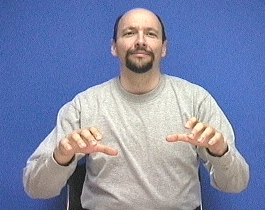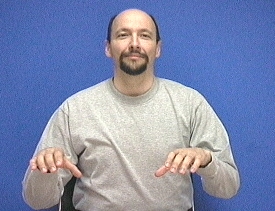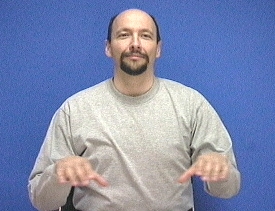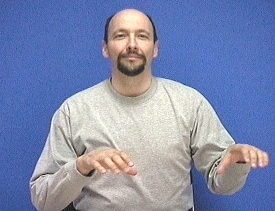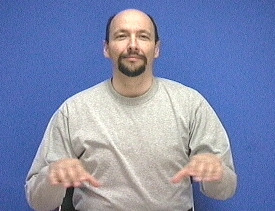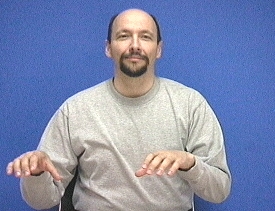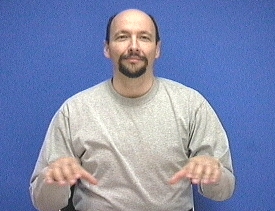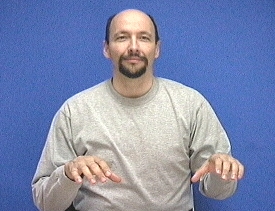American Sign Language: "do" / "Do what?" / "doing" / "action"
Note: When asking questions the vast majority of the time the sign "DO" is done simply by raising your eyebrows. You often don't need to use an actual sign. Instead you just use the "raised eyebrows" facial expression.
For example:
"Do you...?"
There is a sign that is sometimes written as: #DO
That "#" mark indicates that the sign is a "lexicalized fingerspelling" sign that morphed from fingerspelling to the extent that it looks more like a sign and no longer looks much like individualized fingerspelled letters.
This sign is also sometimes written as: "what-DO" Some people also call it a "loan sign" (as in "borrowed" from fingerspelling) but that is an old fashioned term. Most of us now use the term "lexicalized fingerspelling" to refer to fingerspelling that looks like a word.
Some people even refer to this sign as "DO-DO."
Whatever you call it, the sign means: "What are you doing? What did I do? What do we do?" "Do what?" "Did what?" “What (are you/we) doing?
Use "G" hands , palms up, "G" hands change into into a "closed "G" handshapes. Or you can use "D" hands.
See: "WHAT-DO?" (#DO) lexicalized for more information.
what-DO:
Also see: "WHAT-DO" (#DO) lexicalized
Note: Don't use the "WHAT-DO?" sign in sentences like, "DO YOU WANT ICE-CREAM?" Instead just raise your eyebrows and tilt your head forward a bit while signing, "WANT ICE CREAM?"
"DO" / DOING / "I was doing..." / ACTION / activity going on
If you are describing a situation or telling a story in which you want to indicate that general action was taking place, then here is a general version of "DO." General activity can be shown with this sign.
DO / ACTION
Here is a variation of the sign DO. This sign can also mean "behavior."
This variation uses a side to side motion.
DID:
Interestingly enough, I often see the sign "DID." This sign is obviously an English spillover, but the fact is that many ASL signers use this bit of lexicalized fingerspelling from time to time. Notice how the pinkie comes up but the index finger doesn't come down (for the letter "i"). I don't recommend you use this in your ASL classes, but if you plan on hanging out with any Deaf people, it is a nifty little sign of which to be aware.
See animation: "did"
Remember, most of the time you
don’t sign “DO” in ASL. Instead just raise your eyebrows to indicate you are asking a yes or no question. Example: sign "YOU TEACH ASL?" while tilting your head a bit forward and raising your eyebrows.
Also see: DON'T
You can learn sign language online at American
Sign Language
(ASL) University ™
Sign language lessons and resources. Dr. William Vicars © Lifeprint.com
